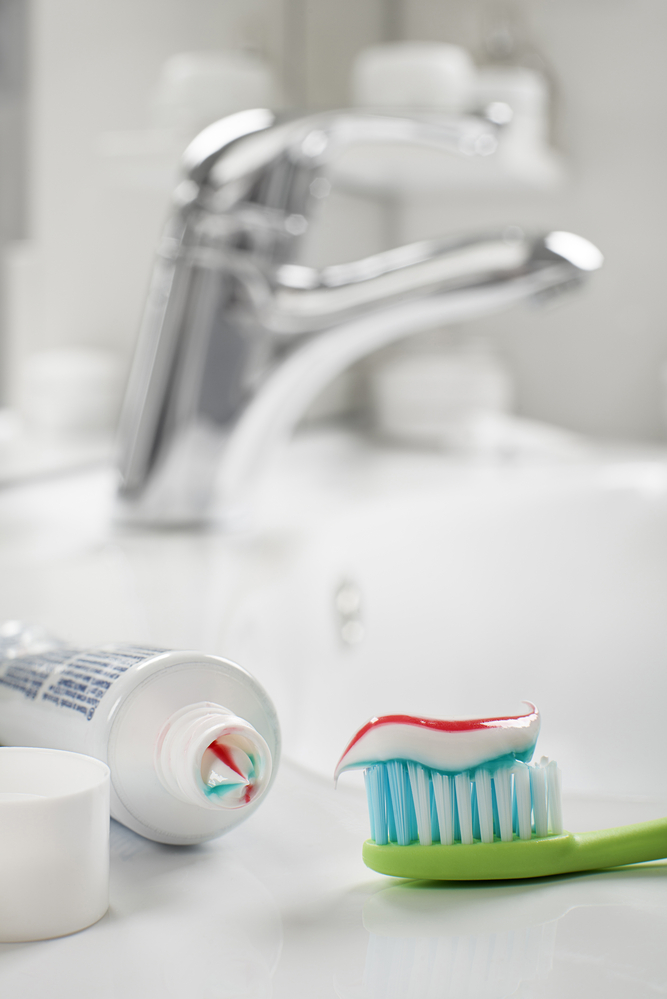There’s a lot of misinformation about fluoride out there. There are a lot of claims that fluoride is toxic and bad for you, that you should stick with fluoride-free toothpastes and mouthwashes, and that you should decline fluoride treatments at the dentist. Whenever it comes to issues like this, about something that impacts your health, it’s important to listen to scientists who have conducted the research and done the studies to find out the truth of the matter. Here’s what you need to know about fluoride and why you should do fluoride treatments.

What Is Fluoride?
Fluoride is a naturally occurring mineral that is found in all of nature’s water sources from rivers to lakes to oceans. Fluoride is naturally in many foods we eat and beverages we drink without anyone having added it in. Commonly referred to as nature’s cavity fighter, fluoride works to strengthen your teeth and prevent cavities through supporting your tooth enamel and staving off the bacteria that would seek to eat away at your teeth and gums.
Though naturally occurring in many foods and drinks, dentists also add fluoride to toothpastes, mouthwashes, and treatments, to ensure that you get enough of it. This is because fluoride helps to prevent cavities, making your teeth stronger, and prevents decay simply through its natural processes. Many communities will also add additional fluoride to their water sources because of fluoride’s proven effectiveness in preventing dental decay.
How Does Fluoride Protect Teeth?
Food is very acidic, as are many beverages, like sodas. These lead to bacteria and sugars which form acids in your mouth that then begin to eat away at your tooth enamel and gums, in a process known as demineralization. Over time, this leads to tooth decay. Fluoride works to prevent this through a process called remineralization. Remineralization is when fluoride along with other minerals such as calcium work to repair the damages caused by acids, ergo fighting off damage and decay.
Since fluoride is an essential component of the remineralization process, it’s key to preventing cavities and keeping your teeth healthy and strong. It also makes teeth more resistant to the acids and things like plaque and bacteria that cause the demineralization process. Fluoride is such an effective method of protecting teeth, that it can even reverse tooth decay in its early stages.
Is Fluoride Toxic?

This is the source of the ‘to fluoride or not to fluoride’ debate. When fluoride is used in natural and recommended doses, it is perfectly safe, and there’s no need to fear it. Fluoride overdoses, poisoning, and toxicity occur when people intake too much fluoride, which is why it is important to use fluoride only as recommended. If you have any concerns about how much fluoride is too much fluoride, your dentist will happily direct you, so that you can rest easy.
The main concern with fluoride is how it poses the risk of fluorosis in children who are developing their teeth. This is when children consume too much fluoride and their tooth enamel darkens. In severe cases, fluorosis can cause pits to occur between the teeth. This is why dentists consult with parents on how much fluoride is safe for their child to consume, in order to avoid the development of fluorosis. As children get older, the amount of fluoride they can have increases. Your dentist will guide you, so that you can ensure your child receives enough fluoride to naturally prevent cavities, without the risk of fluorosis.
Just like people can have allergies to many naturally occurring things, from nuts to pollen, some people are allergic to fluoride. For those with fluoride allergies or for small children, they can opt for fluoride-free toothpastes, and consult with dentists on their best options for strengthening their teeth and preventing cavities.
Why Should I Get Fluoride Treatments?
Though fluoride is naturally occurring, it occurs in varying degrees. Since scientists have uncovered its benefits as a cavity fighter, fluoride treatments have been developed in order to provide additional protection, especially for those who are prone to cavities and decay. Fluoride treatments boost your teeth’s strength and how well they are protected from decay. Anyone can benefit from fluoride treatments, but especially those with a history of decay or erosion.
How Do Fluoride Treatments Work?

Professional fluoride treatments are generally quick. Fluoride treatments come in a variety of forms from gels to varnishes to foams. Your dentist will apply the fluoride to your teeth with a swab or a brush or have you hold a tray with the treatment inside it in your mouth for a few minutes. After the fluoride is applied, it’s recommended you not eat or drink anything for at least half an hour, so that your teeth can properly absorb the fluoride.
Do You Have Questions About Fluoride Treatments?
Gunnell Family Dentistry knows the value of fluoride for protecting your teeth from cavities and decay. We also understand that people can be cautious about fluoride, and want to help answer any questions you may have about it. For any questions, to schedule an appointment, or to learn about our services, please contact us at Gunnell Family Dentistry today!







Leave a Reply